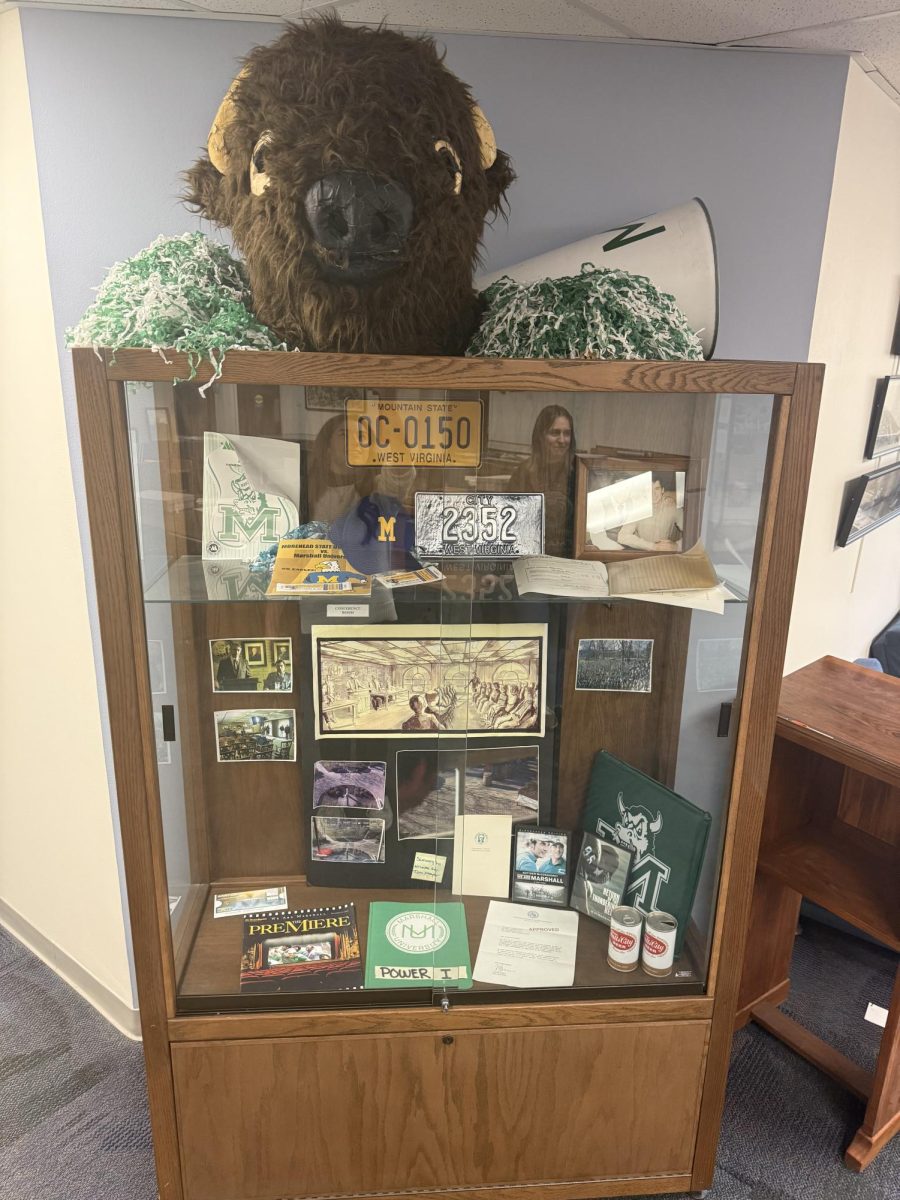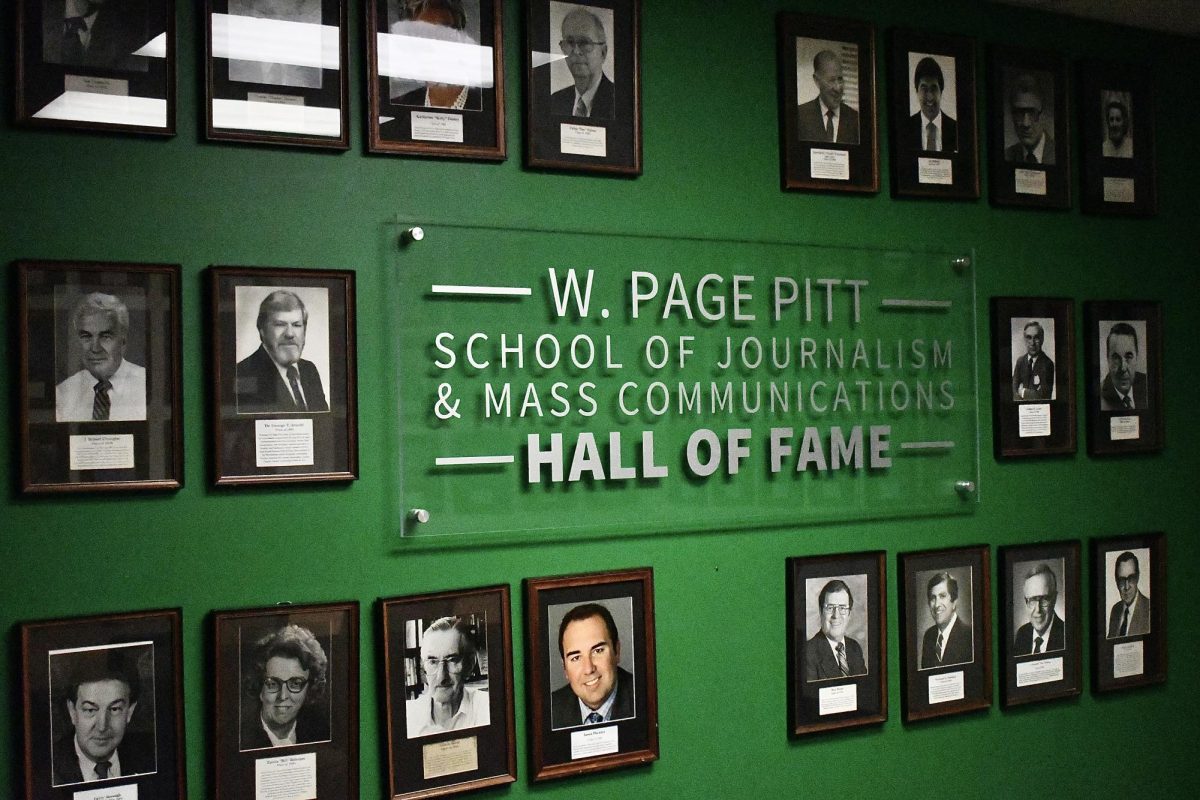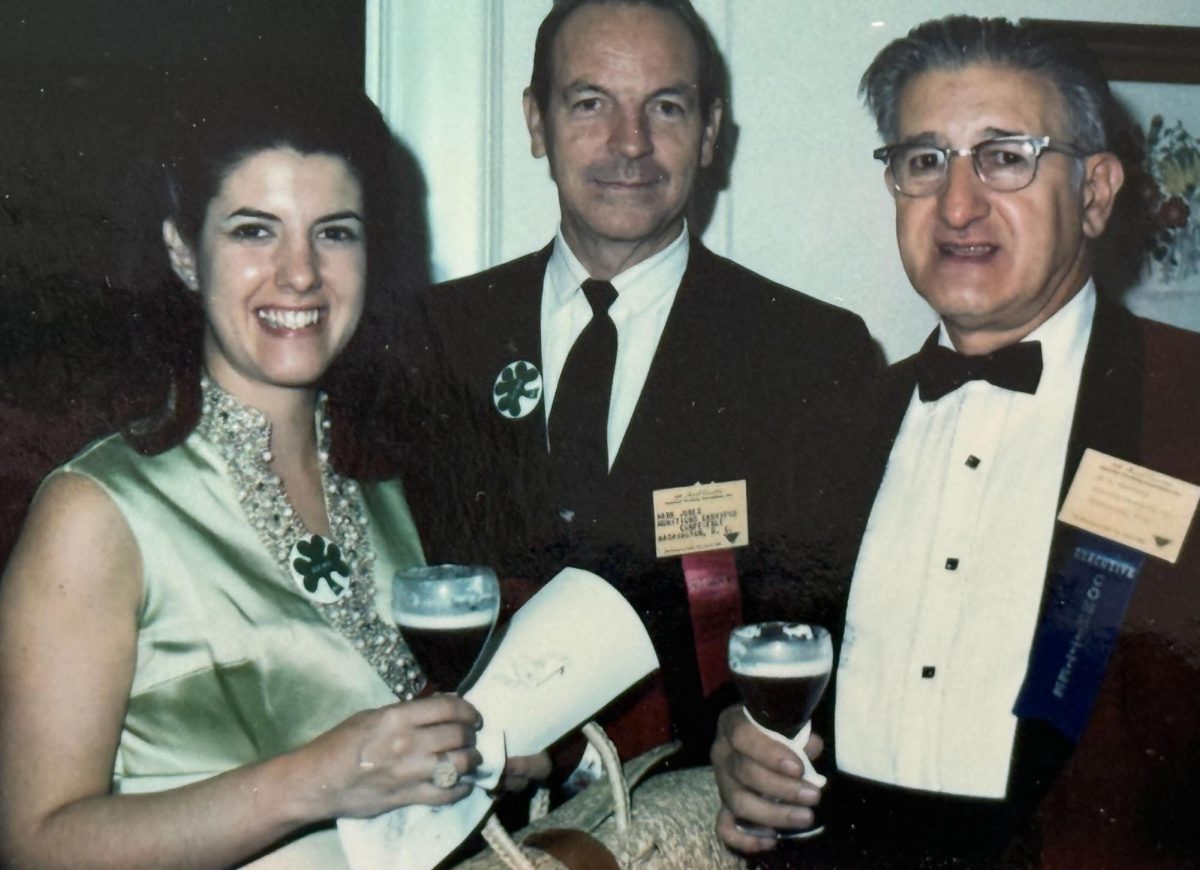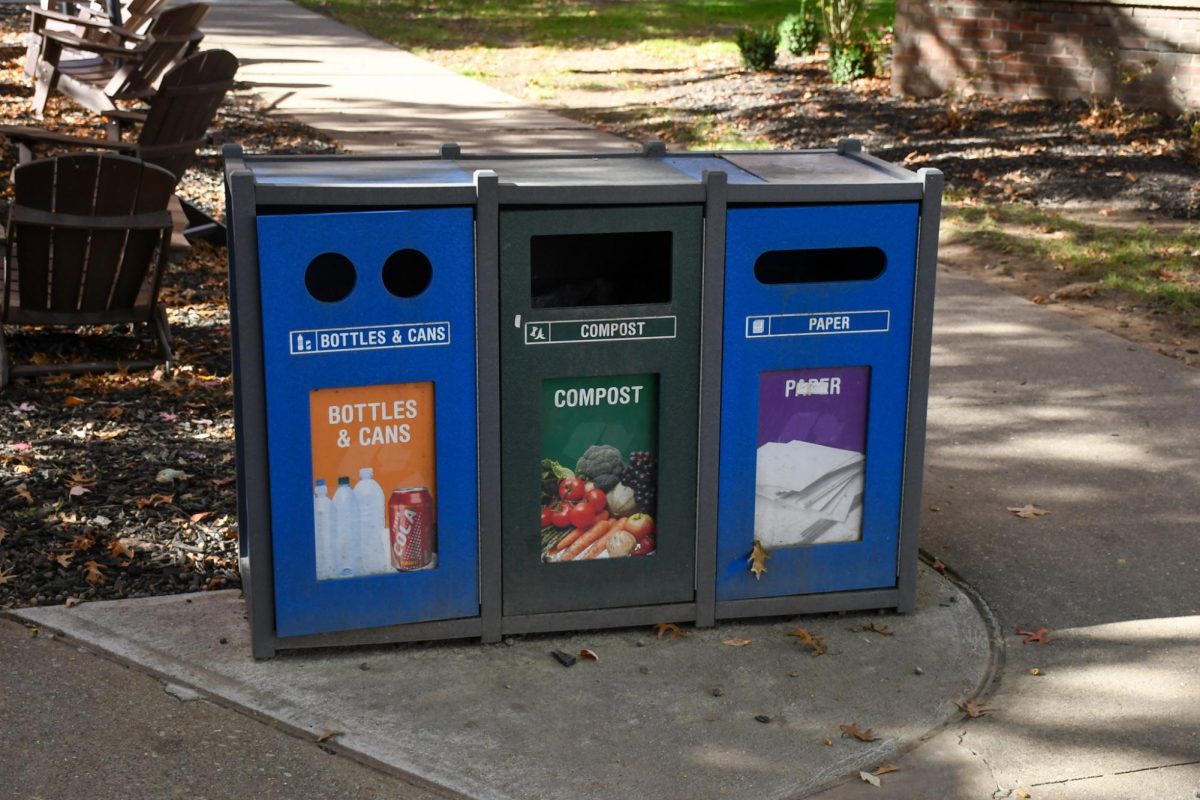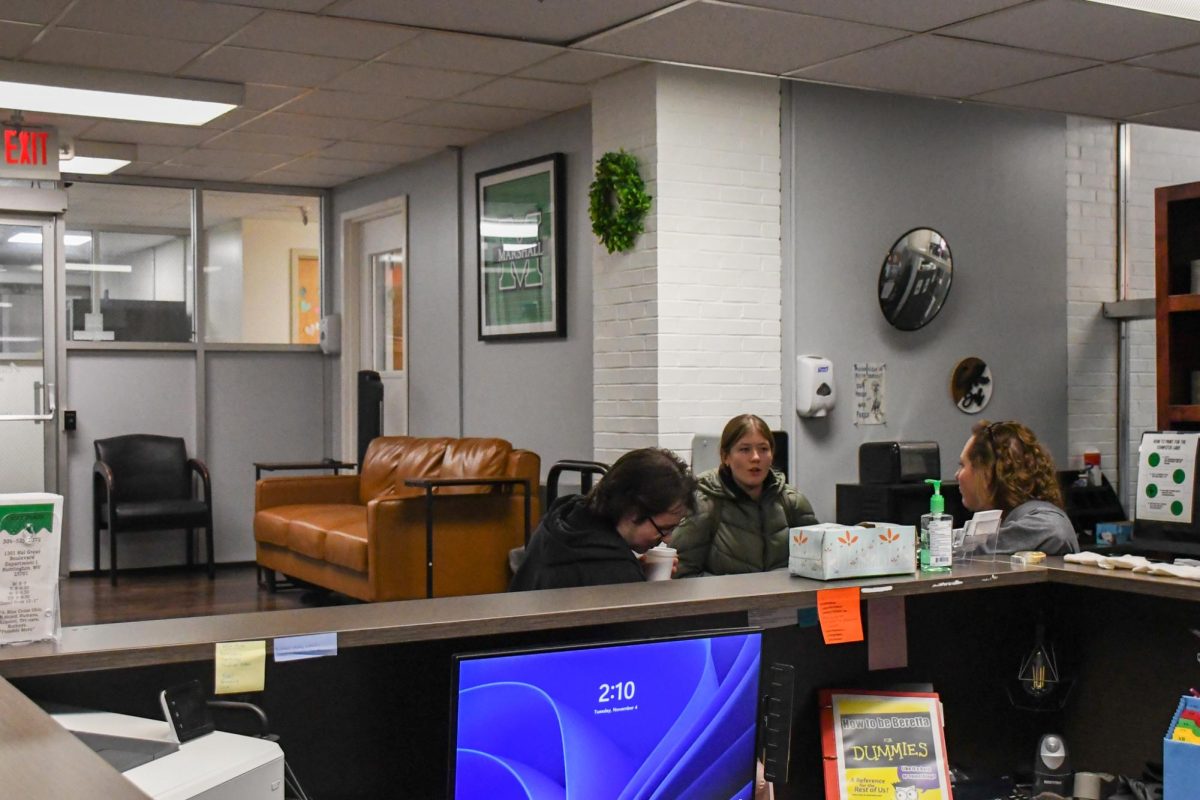Humanities fellowships “have been pretty popular at WVU,” said a grant administrator at a meet and greet for Marshall faculty to learn about grant opportunities on Monday, Nov. 13. This was the first event of its kind since before the pandemic.
“Yes, I’d like Marshall to step up its game,” said Erin Riebe, the grant administrator for the West Virginia Humanities Council, responding to attendees’ comments after hearing that West Virginia University applies more often than Marshall for fellowships.
Riebe explained that, unlike Marshall’s College of Liberal Arts, Eberly College at WVU has “a grant administrator who helps faculty with researching funding sources and reviewing grant proposals.”
COLA or other Marshall colleges might have a similar position. She added that she “generally [has] only worked directly with faculty pre-award.”
However, Riebe and Eric Waggoner, executive director for the council, described more than just fellowships to the faculty. In total, they explained seven grants available to them and Marshall to support projects based in the humanities.
“Overall, we fund well over 50% for our overall grant program,” Riebe said.
The grants described comprise the following types: minigrant, major, media, publication, teacher institute, fellowship and travel assistance.

The first five are relevant exclusively to organizations like the English department and the Simon Perry Center for Constitutional Democracy. For example, Riebe said that the minigrant partially funds the A. E. Stringer Visiting Writers Series, and the major supports the Amicus Curiae Lecture Series on Constitutional Democracy.
Interested faculty of similar groups must go through the Marshall University Research Corporation to apply for the first five grant types.
Riebe said, though, that projects for any of the seven grants need only at least one humanities scholar in the same field as the project’s focus. In this way, faculty in fields outside of the humanities can still benefit from the grants.
“Our goal really is to grow the humanities ecosystem in West Virginia,” Waggoner said.
Professors in various fields—from chemistry to philosophy to Japanese—attended the meet and greet.
Faculty members interested in applying should visit wvhumanities.org/grants/aboutourgrants or email Riebe at riebe@wvhumanities.org. Riebe encouraged future applicants to email her with proposal drafts so she could provide feedback before their deadlines.



